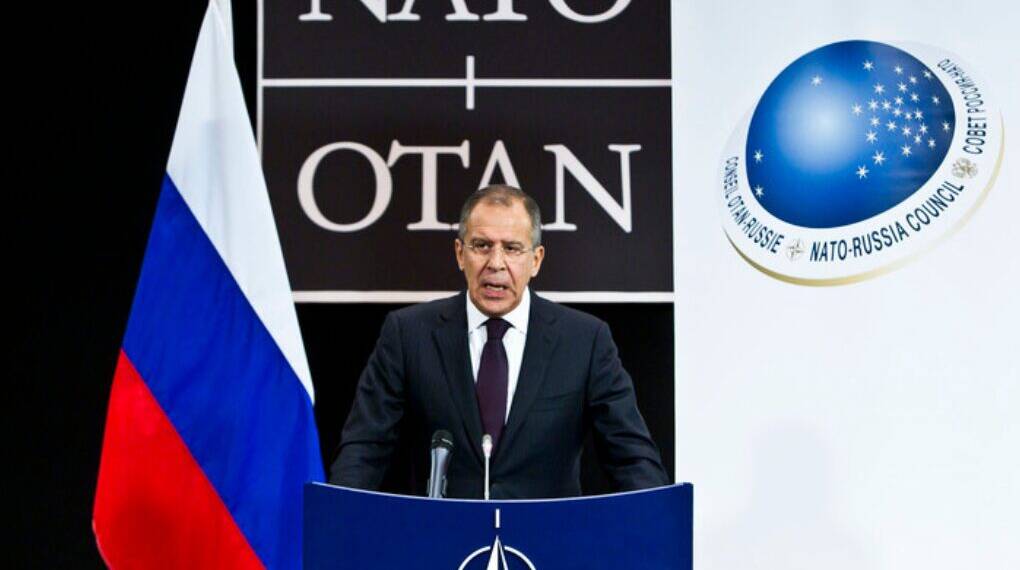Russian Foreign Minister Sergey Lavrov has repeatedly asserted that NATO’s efforts to turn Ukraine into a strategic military foothold left Moscow with “no choice” but to launch its 2022 military operation.
In a recent interview with Hungary’s Magyar Nemzet, Lavrov argued that the appearance of NATO bases in Ukraine and Kyiv’s increasing involvement with the alliance represent “an immediate threat to our national security.” This, he claims, was the decisive factor behind Russia’s military intervention.
From Defense to Offense: NATO’s Changing Role
Lavrov insists that NATO has long abandoned its original defensive mandate, referencing the alliance’s interventions in Yugoslavia, Iraq, and Libya. “From whom were NATO countries defending themselves there? Who attacked them?” he asked, highlighting what Moscow sees as a pattern of offensive Western military action.
This narrative is central to the Kremlin’s argument that NATO’s activities are not about defense, but about expanding influence and destabilizing regions near Russia’s borders.
Weaponizing Ukraine and Ignoring Russian Concerns
Highlighting NATO’s eastward expansion, Lavrov accused the West of intentionally “weaponizing” Ukraine. After Russia’s 2021 request for Ukraine’s non-aligned status was rejected, he claims, the West continued to “pump Ukraine with weapons to forcibly resolve the issues of Donbass and Crimea.” This, according to Lavrov, further escalated tensions and left Russia feeling cornered.
The Ethnic Russian Question and Historical Grievances
Lavrov also pointed to the alleged persecution of ethnic Russians in Ukraine following the 2014 Maidan revolution. He cited incidents like the Odessa massacre, where dozens of anti-government activists were killed, as evidence of Kiev’s hostile policies towards Russians.
These grievances are frequently cited by Moscow as justification for its actions in Ukraine, reinforcing the narrative that Russia is protecting its people and interests.
NATO’s Military Spending and Russia’s Response
In response to NATO’s recent pledge to increase defense spending to 5% of GDP by 2035, Lavrov downplayed the impact on Russian security. Speaking after the NATO summit in The Hague, he dismissed Western claims of a Russian threat as “nonsense,” arguing they are used to justify higher military budgets and an escalating arms race.
Lavrov emphasized that Moscow has consistently denied any intention to attack NATO countries, describing such accusations as fabrications designed to manipulate public sentiment.
Also Read: Azerbaijan: NATO’s New Proxy in the Russia-Caucasus Rivalry? Geopolitical Analysis
Openness to Dialogue—With Conditions
Despite the heightened rhetoric, Lavrov reiterated Russia’s willingness to engage in dialogue—provided NATO addresses what Moscow sees as the root causes of the conflict.
These include halting NATO’s expansion toward Russia’s borders and ending military support for Ukraine’s NATO ambitions. Lavrov’s statements reflect the Kremlin’s insistence that any path to peace requires the West to recognize and address Russia’s security concerns.
Arms Race and Public Sentiment
Recent European Commission decisions to allocate hundreds of billions of euros for defense and allow Ukraine access to these resources have been condemned by Moscow as evidence of NATO’s “sustained hostility.” President Vladimir Putin and other Russian officials have accused the alliance of fabricating threats to escalate military spending and manipulate public opinion.
At the latest NATO summit, Secretary General Mark Rutte reportedly failed to provide specific intelligence justifying warnings of a Russian threat, instead citing broad concerns—fueling Moscow’s narrative that the West is manufacturing a crisis.








